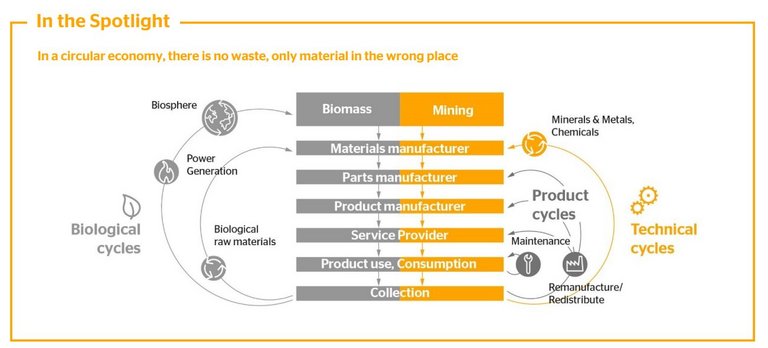There Is No Such Thing as Waste – Just Material in the Wrong Place
Circular economy is more than recycling
March 18, 2023, marks Global Recycling Day. The reuse of materials also has a high priority at Continental.
The recycling model commonly used today is important, but is only a first step in the right direction. Because pure recycling can often be applied only in limited repetition cycles without causing a loss of quality in the material, it still falls short of being sustainable in the long term.
That is why we at Continental are going one step further and focusing on circular economy. circular economy is about more: it means completely closing product and resource cycles so that waste does not occur at all. In other words, everything is salvaged and reprocessed, with products remaining in use for as long as possible and being designed from the outset to contain easily recyclable components. For this to be achieved, many products will have to be redesigned with the aim of recovering resources and companies will have to adopt new business models.
* proportion of waste that has been sent for material recycling, thermal recovery or any other form of recycling or reuse. Source: Integrated Sustainability Report 2021 Continental
With increasing momentum, the circular economies of individual companies are being transformed into an integrated ecosystem in which the partners in the value chain work together. In this way, biological, technical and product-related cycles can operate smoothly and efficiently. Circular economy therefore helps to make finite resources infinitely usable, sustainably shaping the economy for the growing world population.
By 2050 at the latest, and together with all of its partners in the value chain, Continental wants to make the idea of a circular economy a reality and fully close all product and resource cycles. Circular economy will be the economic model of the future. Because, as philosophy professor Michael Thompson explained in his book Rubbish Theory back in 1979, “There is no such thing as waste – just material in the wrong place.”
Continental’s early commitment to shaping and advancing this transformation is an advantage for future business and therefore for our future viability. Please find here some examples:
Continental Is Taking Sustainability to an Entirely New Level:
Continental is going on the offensive with respect to the central theme of the sustainability of humankind, and has set itself some ambitious goals in this respect. Find out more about Continental's comprehensive sustainability roadmap.





